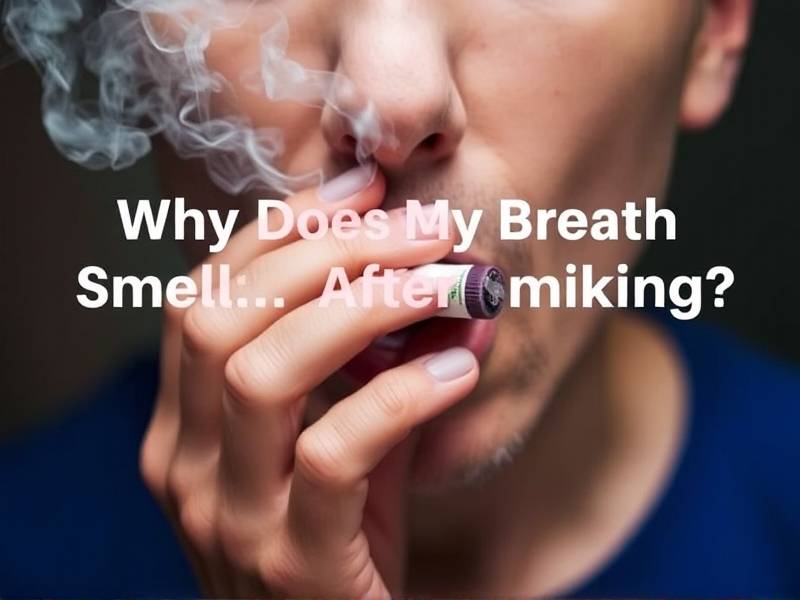Why Does My Breath Smell After Quitting Smoking? The Science Behind the Issue
Introduction: The Unexpected Side Effect of Quitting Smoking
Quitting smoking is a significant step towards a healthier lifestyle. However, many ex-smokers find themselves dealing with unexpected side effects, one of which is bad breath. This article delves into the science behind why your breath might smell after quitting smoking.
The Role of Nicotine in Bad Breath
Nicotine, the primary addictive substance in cigarettes, has a drying effect on the mouth. This dryness can lead to an overgrowth of bacteria, which are responsible for producing unpleasant odors. When you quit smoking, your mouth begins to produce more saliva, which helps to wash away bacteria and keep your breath fresh. However, during this transition period, you may still experience bad breath as your body adjusts to the change.
Post-Quitting Halitosis: A Temporary Condition
Post-quit halitosis is a common issue that usually resolves within a few days to weeks after quitting smoking. It occurs because your body is detoxifying itself from nicotine and other harmful chemicals found in cigarettes. During this time, it's essential to maintain good oral hygiene practices and stay hydrated to support your body's healing process.

Good Oral Hygiene: Your First Line of Defense
One of the most effective ways to combat bad breath after quitting smoking is by practicing good oral hygiene. This includes brushing your teeth at least twice a day, flossing daily, and using mouthwash. Brushing helps remove food particles and plaque that can contribute to bad breath. Flossing removes food debris trapped between teeth and below the gumline where bacteria thrive.

Staying Hydrated: A Simple Solution for Fresh Breath
Drinking plenty of water throughout the day can also help keep your mouth moist and reduce bad breath. Water helps dilute acids in your mouth that can cause tooth decay and contribute to bad breath. Aim for at least eight glasses of water per day or more if you're exercising or spending time outdoors.
Alternative Treatments for Bad Breath
In some cases, bad breath may persist even after implementing good oral hygiene practices and staying hydrated. If this happens, consider trying alternative treatments such as:
- Chewing sugar-free gum or mints: These can stimulate saliva production and help mask unpleasant odors temporarily.
- Using an alcohol-free mouth rinse: Some mouth rinses contain ingredients that kill bacteria responsible for bad breath.
- Seeking professional advice: If you continue to experience persistent bad breath despite taking these steps, consult with a dentist or healthcare professional.
Conclusion: Embracing Change for a Healthier Life
While experiencing bad breath after quitting smoking may be an unwelcome surprise, it's important to remember that it's a temporary condition linked to the body's healing process. By focusing on maintaining good oral hygiene and staying hydrated, you can overcome this challenge and enjoy the benefits of a smoke-free life.
